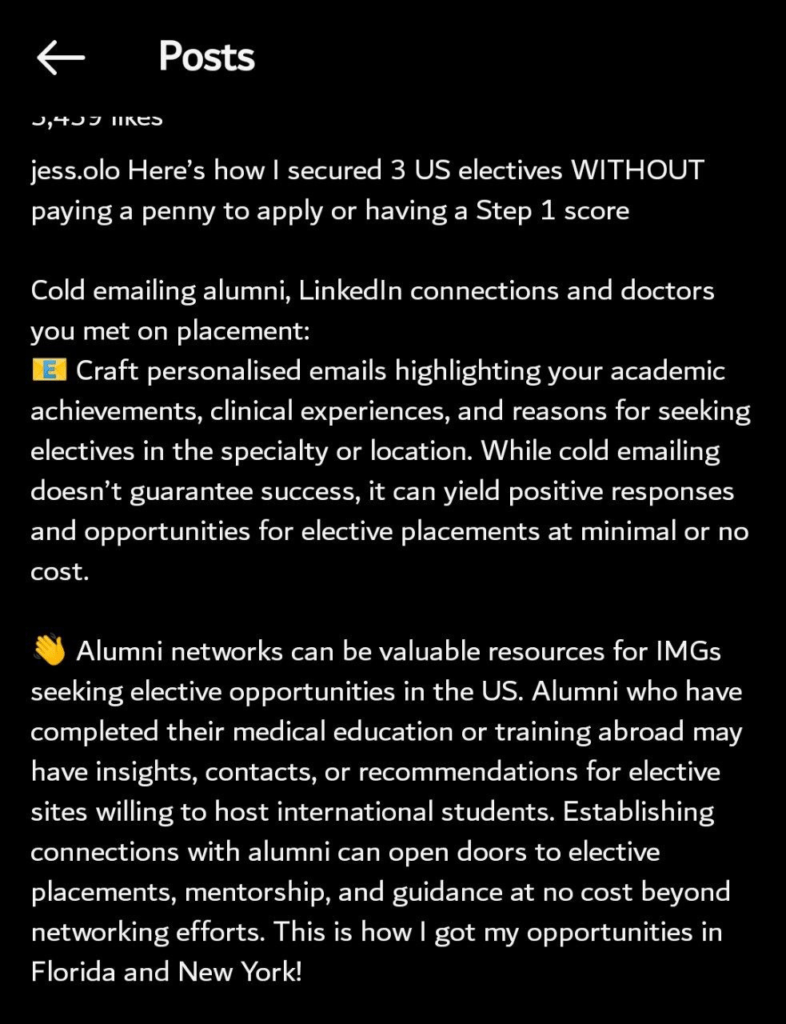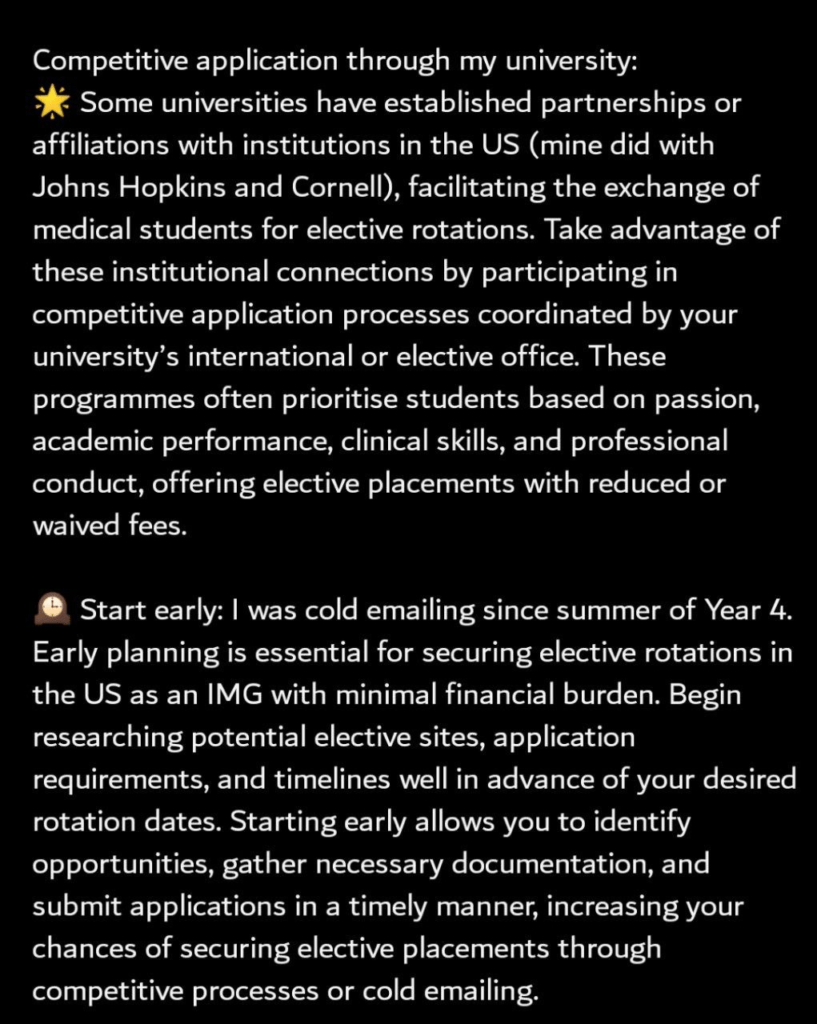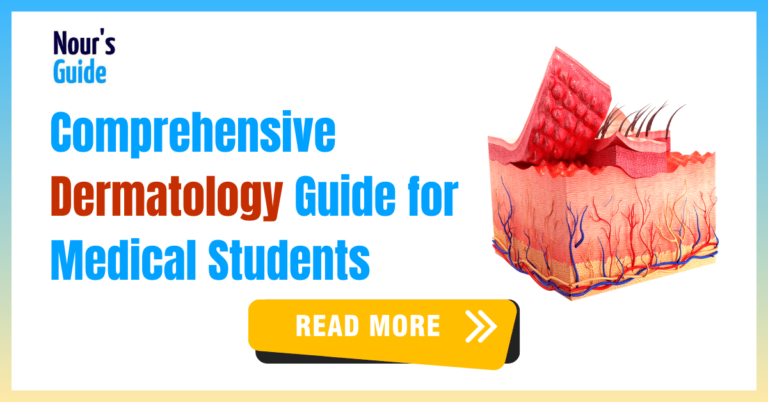A Step-by-Step Guide to Applying for Electives in the USA for Medical Students15 min read
The United States is a hub of medical innovation and education, attracting countless International Medical Graduates (IMGs) each year seeking hands-on clinical experience. Crucial to this endeavor are the elective rotations to integrate into the U.S. healthcare system and solidify one’s medical credentials. For IMGs seeking to practice medicine in the U.S., navigating the numerous opportunities for electives is vital. This guide is specifically tailored to help IMGs unlock the best electives in the USA and take significant strides in their medical careers. Let’s dive in.
In this blog post, we will provide you with a step-by-step guide on how to apply for electives in the USA, including which hospitals to consider, what to include in your application, the visa process, overall costs, and the potential downsides of pursuing electives abroad.

Firstly, when considering which hospitals to apply to for your electives, it is important to research and identify institutions that align with your medical interests and goals. The United States boasts a wide range of hospitals, each with its own specialties and areas of expertise. Some hospitals are renowned for their research programs, while others excel in clinical training. By understanding your own interests and career aspirations, you can narrow down your choices.
Understanding Electives and Their Importance for IMGs
Electives serve as an indispensable tool for IMGs looking to practice in the U.S., offering them a unique glimpse of the American healthcare system. These experiences not only contribute to their education but also significantly enhance their resumes.
– Recommendation Acquisition: Gleaning essential endorsements from U.S. medical faculty
– Demonstration of Aptitude: Showcasing clinical prowess within a hands-on environment
– Professional Connection Formation: Establishing a network to aid in subsequent career steps
The impact of participating in electives is profound, providing both practical knowledge and career development opportunities for IMGs.
VSLO Pathway:
accessible only to students at participating home institutions, and it is easy for schools to join.
The VSLO program, offered by the AAMC, allows medical and public health students to pursue short-term learning opportunities outside of their home institutions. These opportunities include observerships, summer research programs, clinical rotations, and visiting opportunities in various locations around the world. Participating host institutions offer these elective opportunities to preclinical, clinical, or final-year students. If you are new to the VSLO program, familiarize yourself with the resources provided. If you are ready to apply, log in to the VSLO application service. The program is
Non-VSLO Pathway:
List of Electives for IMGs in the USA
Non-VSLO electives offer a gateway for IMGs to access U.S. clinical experiences beyond the conventional Visiting Student Learning Opportunities program. These alternative pathways are critical for IMGs who wish to immerse themselves in the U.S. healthcare setting while bypassing VSLO system constraints. The year 2024 continues to bring about expanding opportunities for IMGs to engage in these unique experiences.
Check out TheMatchGuy List for Non-VSLO Opprutioniites HERE. If you can’t access the website you can download it directly from here.
We will give you an EXTRA list of hospitals to choose from VSLO
Below are the top major teaching hospitals:
- Trinity Health Ann Arbor Hospital (Ypsilanti, Mich.)*
- Baylor University Medical Center (Dallas)*
- St. Luke’s University Hospital – Bethlehem (Pa.)
- University of Utah Hospital (Salt Lake City)
- NYU Langone Health – Tisch Hospital (New York City)
- Vanderbilt University Medical Center (Nashville, Tenn.)
- Penn Presbyterian Medical Center (Philadelphia)
- St. Joseph’s Hospital and Medical Center (Phoenix)
- HCA Florida Aventura Hospital
- Houston Methodist Hospital
- Geisinger Medical Center (Danville, Pa.)
- UTMB Health Galveston (Texas) Campus
- AdventHealth Redmond (Rome, Ga.)
- Wesley Medical Center (Wichita, Kan.)
- Swedish Medical Center (Englewood, Colo.)
- St. Luke’s Anderson Campus (Easton, Pa.)
- Grand Strand Medical Center (Myrtle Beach, S.C.)
- The Medical Center of Aurora (Colo.)
- McKay-Dee Hospital (Ogden, Utah)
- Rose Medical Center (Denver)
- Intermountain Medical Center (Murray, Utah)
- HCA Florida Trinity (Fla.) Hospital
- Doctors Hospital of Augusta (Ga.)
- Rush Oak Park (Ill.) Hospital
- HCA Florida North Florida Hospital (Gainesville, Fla.)
- St. Mark’s Hospital (Salt Lake City)
- HCA Florida Brandon Hospital
- UChicago Medicine AdventHealth Hinsdale (Ill.)
- Henry Ford West Bloomfield (Mich.) Hospital
- Medical City Denton (Texas)
- Geisinger Wyoming Valley Medical Center (Wilkes Barr, Pa.)
- Southern Hills Hospital & Medical Center (Las Vegas)
- OhioHealth Doctors Hospital (Columbus, Ohio)
- UCHealth Poudre Valley Hospital (Fort Collins, Colo.)
- UnityPoint Health – St. Luke’s Hospital (Cedar Rapids, Iowa)
- Medical City Fort Worth (Texas)
- Sky Ridge Medical Center (Lone Tree, Colo.)
Once you have identified the hospitals you wish to apply to, it is time to start preparing your application. It is crucial to ensure that your application stands out from the rest, as competition for elective placements can be fierce. Start by updating your curriculum vitae (CV) to highlight your academic achievements, clinical experience, and any research projects you have been involved in. Additionally, include a well-crafted personal statement that showcases your passion for medicine and explains why you are interested in undertaking electives in the USA. As Jess posted on Instagram


Once you have familiarized yourself with the resources mentioned above, it is time to delve deeper into your research and gather more information about the hospitals and programs that have caught your interest. One way to do this is by visiting the official websites of the hospitals or programs. These websites often provide detailed information about the electives they offer, including the specialties available, the duration of the program, and any specific requirements or prerequisites.
Additionally, you can also reach out to current or former students who have completed electives at these institutions. They can offer valuable insights into their personal experiences, the quality of the program, and the support provided by the hospital or program. Connecting with these individuals can be done through online forums, social media groups, or even by contacting the hospitals directly and requesting contact information for students who have participated in their electives.
Preparing Your Application
Once you have identified potential hospitals and programs, it’s time to start preparing your application. Here are some essential components to include:
- Curriculum Vitae (CV): Prepare a comprehensive CV that highlights your education, clinical experience, research activities, publications, and any additional relevant information.
- Personal Statement: Write a compelling personal statement that explains your motivation for pursuing electives in the USA. Discuss your career aspirations, what you hope to gain from the experience, and how it aligns with your long-term goals. Be sure to convey your enthusiasm and dedication. Use this opportunity to showcase your unique qualities and experiences that make you a strong candidate. Provide specific examples of challenges you have overcome or significant achievements you have attained. This will help the selection committee to understand your passion for medicine and your potential to contribute to the field.
- Letters of Recommendation: Request letters of recommendation from professors, mentors, or healthcare professionals who can speak to your abilities, work ethic, and potential as a medical student. Choose individuals who know you well and can provide insightful and positive recommendations. It is important to give your recommenders ample time to write the letters and provide them with any relevant information about your achievements, goals, and experiences. This will help them write personalized and impactful letters that highlight your strengths and potential.
- Transcripts: Include official transcripts from your medical school to demonstrate your academic performance and progress. Make sure to request these transcripts well in advance to allow for any processing time. It is important to ensure that your transcripts are accurate and up-to-date, as they provide a comprehensive overview of your academic achievements.
- English Proficiency: If English is not your first language, you may need to provide proof of English proficiency through standardized tests such as the TOEFL or IELTS. These tests assess your ability to understand and communicate effectively in English, which is crucial for participating in electives in the USA. Make sure to check the specific requirements of each hospital or program you are applying to, as they may have different minimum score requirements or accept alternative proof of English proficiency.
Make sure to carefully review the application requirements of each hospital or program you are applying to, as they may have specific instructions or additional documents they require. Pay attention to deadlines and submit your application well in advance to ensure that it is complete and arrives on time. Remember that the application process can be competitive, so it is important to put your best foot forward and present yourself in the most favorable light. Good luck with your application!
Understanding the Visa Process
Before embarking on your elective journey to the USA, it is crucial to understand the visa process and requirements. Here are the main visa options for medical students:
- B-1 Visa: The B-1 visa is suitable for medical students undertaking unpaid electives. It allows you to participate in a clinical clerkship for a limited period. However, it is essential to note that the B-1 visa does not permit you to engage in any paid activities.
- J-1 Visa: The J-1 visa is a popular choice for medical students pursuing electives in the USA. It is sponsored by the Educational Commission for Foreign Medical Graduates (ECFMG) and requires you to fulfill certain eligibility criteria. The J-1 visa allows you to engage in clinical training for a specific duration and may offer the opportunity to extend your stay for residency interviews.
- F-1 Visa: The F-1 visa is typically used by international students pursuing full-time academic programs in the USA. However, some medical schools offer elective programs that qualify for the F-1 visa. Check with your medical school and the respective hospital or program to determine if this option is available.
- H-1B Visa: The H-1B visa is another option for medical students who have completed their medical degree and wish to pursue a residency program in the USA. This visa is sponsored by the hospital or institution where you will be completing your residency and requires you to have a job offer from a qualified employer. The H-1B visa allows you to work in the USA for a specific period, typically up to six years, and may be a pathway to obtaining permanent residency.
It is crucial to consult with the hospital or program you are applying to and seek guidance from your medical school’s international office to ensure you choose the most appropriate visa option for your elective experience. Additionally, it is important to start the visa application process well in advance to allow for any delays or unforeseen circumstances. Remember to gather all the necessary documentation, such as your passport, visa application forms, proof of financial support, and any required medical or vaccination records. By understanding the visa process and meeting all the requirements, you can ensure a smooth and successful elective experience in the USA.
Calculating the Overall Costs
Undertaking electives in the USA involves various expenses that you need to consider. Here are some of the main cost factors:
- Application Fees: Many hospitals and programs charge application fees, which can range from $50 to $500 per application. Take this into account when creating your budget. These fees are typically non-refundable and cover administrative costs associated with reviewing your application.
- Visa Fees: Depending on the visa type you choose, there will be associated fees. For example, the J-1 visa requires payment of the SEVIS fee, which is currently $220. Additionally, there may be fees for visa application processing and interviews. It is important to carefully research the specific visa requirements and associated costs.
- Travel Expenses: Consider the costs of flights, accommodation, transportation, and daily living expenses during your elective period. These expenses can vary significantly depending on the location and duration of your electives. Flights to the USA can be expensive, especially if you are traveling from a distant country. Accommodation costs will depend on whether you choose to stay in a hotel, rent an apartment, or find a host family. Transportation expenses can include renting a car, using public transportation, or relying on ridesharing services. Daily living expenses should cover meals, groceries, and other necessities.
- Health Insurance: It is essential to have comprehensive health insurance coverage during your time in the USA. Healthcare costs in the USA can be extremely high, and having insurance will protect you from unexpected medical expenses. Research and compare different insurance options to find a plan that suits your needs and budget. Some hospitals or programs may require proof of health insurance before accepting you for elective placements.
- Additional Costs: Keep in mind any additional expenses, such as textbooks, medical supplies, and visa processing fees. Textbooks and medical supplies can be costly, especially if you are required to purchase specific materials for your elective placements. Visa processing fees may vary depending on the type of visa you are applying for and the processing time required.
Creating a detailed budget will help you plan your finances and ensure that you are prepared for the overall costs associated with pursuing electives in the USA. It is important to consider all possible expenses and factor them into your budget to avoid any financial surprises during your elective period. Additionally, it is advisable to have some extra funds available for emergencies or unexpected expenses that may arise during your time in the USA.
The Downsides of Pursuing Electives Abroad
While electives in the USA offer incredible learning opportunities, it is essential to consider the potential downsides. One of the main challenges that international medical students may face is the competitive application process. Securing electives in popular hospitals and programs can be highly competitive, with limited spots available for a large number of applicants. This means that there is a possibility of facing rejections, even if you have excellent qualifications and credentials. It is important to be prepared for this and have alternative options in mind.
Another significant factor to consider is the financial burden associated with pursuing electives in the USA. Apart from the usual expenses such as application fees and travel expenses, international students also have to factor in visa fees, accommodation costs, and other miscellaneous expenses. These costs can add up quickly and may put a strain on your finances. It is crucial to have a realistic understanding of the financial commitment involved and plan accordingly.
Furthermore, cultural adjustment can be a significant challenge when undertaking electives abroad. Adapting to a new healthcare system and cultural environment can be both exciting and overwhelming. Medical practices, patient interactions, and healthcare policies may differ significantly from what you are accustomed to in your home country. It is important to be open-minded, flexible, and willing to learn from these differences. Embracing a different approach to medical practice can broaden your perspective and enhance your skills as a future healthcare professional.
Additionally, visa restrictions can also pose challenges for international medical students pursuing electives in the USA. Depending on the visa type you choose, there may be certain limitations and restrictions on your activities and duration of stay. It is crucial to familiarize yourself with the visa regulations and requirements to avoid any legal issues. Ensuring that you have the appropriate visa and understanding the limitations it may impose can help you plan your electives effectively and make the most of your time in the USA.
Despite these potential challenges, many medical students find the experience of undertaking electives in the USA to be immensely rewarding and beneficial for their future careers. The opportunity to learn from renowned medical professionals, gain exposure to advanced medical technologies, and work in diverse healthcare settings can have a profound impact on your knowledge and skills. It can also provide valuable networking opportunities and open doors for future collaborations and research projects. With careful planning, preparation, and a positive mindset, pursuing electives abroad can be a transformative experience that contributes to your growth as a medical professional.
Conclusion:
In conclusion, applying for electives in the USA requires careful planning and preparation. By researching and selecting the right hospitals, crafting a strong application, navigating the visa process, and considering the overall costs and potential downsides, you can maximize your chances of securing a valuable elective experience in the United States. Good luck!
researching hospitals and programs is a crucial first step in applying for electives in the USA. By utilizing the resources available to you, exploring official websites, connecting with current or former students, and utilizing the AAMC database, you can gather comprehensive information about the institutions that offer suitable opportunities for international medical students. By carefully evaluating your options and considering your own interests and career goals, you can select hospitals and programs that will provide you with a valuable and rewarding clinical clerkship experience.








